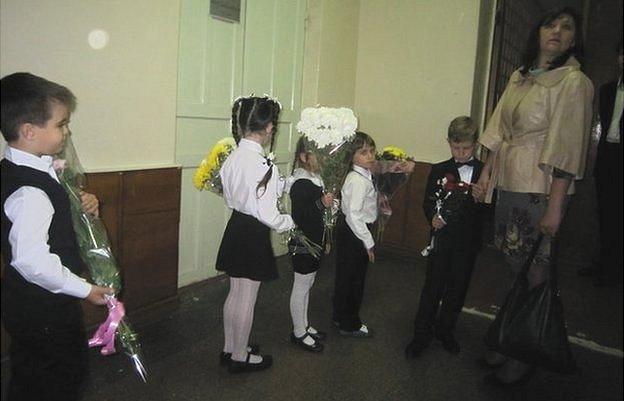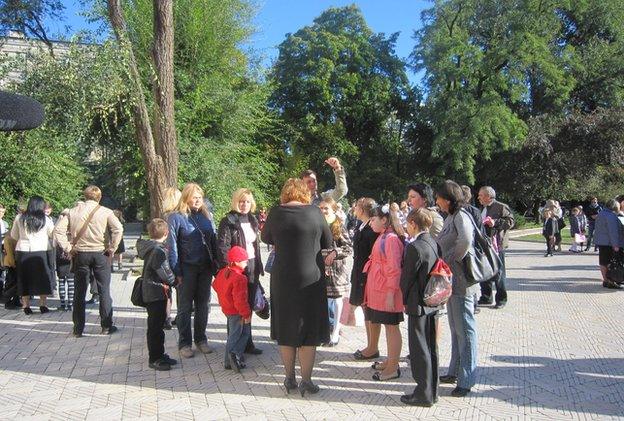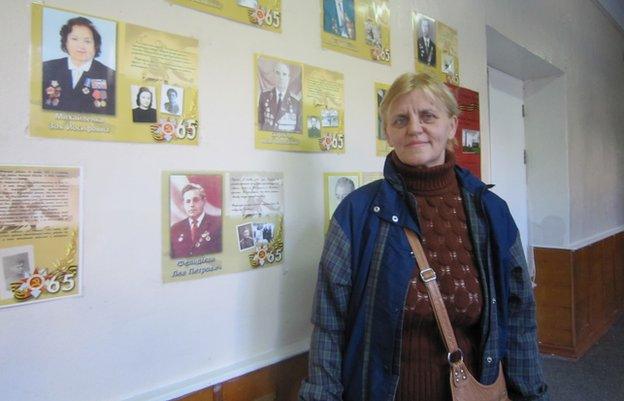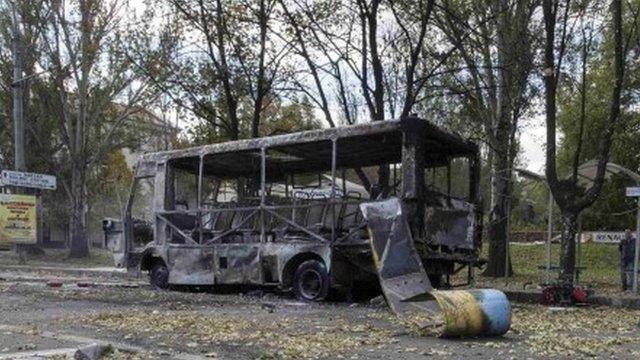Ukraine shelling shatters Donetsk's first day of school
- Published

Children followed Soviet traditions of dressing up smart and handing bouquets of flowers to teachers
The start of the school year in Donetsk is usually a time of celebration, one of the happiest days on any family's calendar.
At School Number One in the city centre, traditions dating back to Soviet times were being observed.
New pupils arrived clutching bunches of flowers, girls wore their hair in bunches, tied with white bows, while parents and grandparents gathered outside, wiping away nervous tears of pride.

Pupil numbers have fallen dramatically because many children are scattered across Ukraine and Russia
But this year, those trappings of normality could not mask the bleaker reality of life in the city.
For a start, this was 1 October, not the traditional 1 September. The instability in Donetsk had forced its schools to delay their opening by a month.
Student numbers are down. Many families left after fighting broke out between pro-Russian rebels and Ukrainian forces several months ago.
And just a few miles away, at School Number 57, a shell landed in the playground, killing four people. One victim was a biology teacher.
At School Number One, only 249 of the 904 registered pupils arrived for classes on Wednesday.
The other children are scattered around parts of Ukraine and Russia and, for the moment, the only way for them to continue their education is via online lessons, which the school's teaching staff have been developing.
Despite a nominal ceasefire between rebels and government forces, the sound of shelling echoed through the air as the children walked into the building, clutching their books and flowers.
It almost drowned out the ringing of the school bell, which signalled the start of the new school year.

English teacher Natalya Iyegovskaya was pleased to see her pupils again
"I'm glad they're back at school," one doting grandmother told me. "I only wish that the fighting was over."
Inside, in one of the corridors, English teacher Natalya Iyegovskaya put on a brave face.
"I'm glad to see my pupils again," she told me. "It's nice that they're alive. We have to teach them love: for their country; for their teachers, for each other."
But what is their country?
Donetsk is under the control of the pro-Russian Donetsk People's Republic, but teachers' salaries are still paid, albeit with delays, by the government in Kiev and some lessons are still being taught in Ukrainian.
Natalya Iyegovskaya told me she was using the same text books and following the same curriculum as last year, "at least for now".
Inside the school's assembly hall, the acting head teacher gave out prizes for last year's work and invited some of the new pupils to perform on stage.
With the sound of shelling clearly audible in the room, there was an added poignancy to a short reading about a child's first day at school.
"For some reason, mummy and daddy are upset," one small boy recited to a solemn-looking audience. "They couldn't sleep last night, because they're worried about me."
- Published1 October 2014
